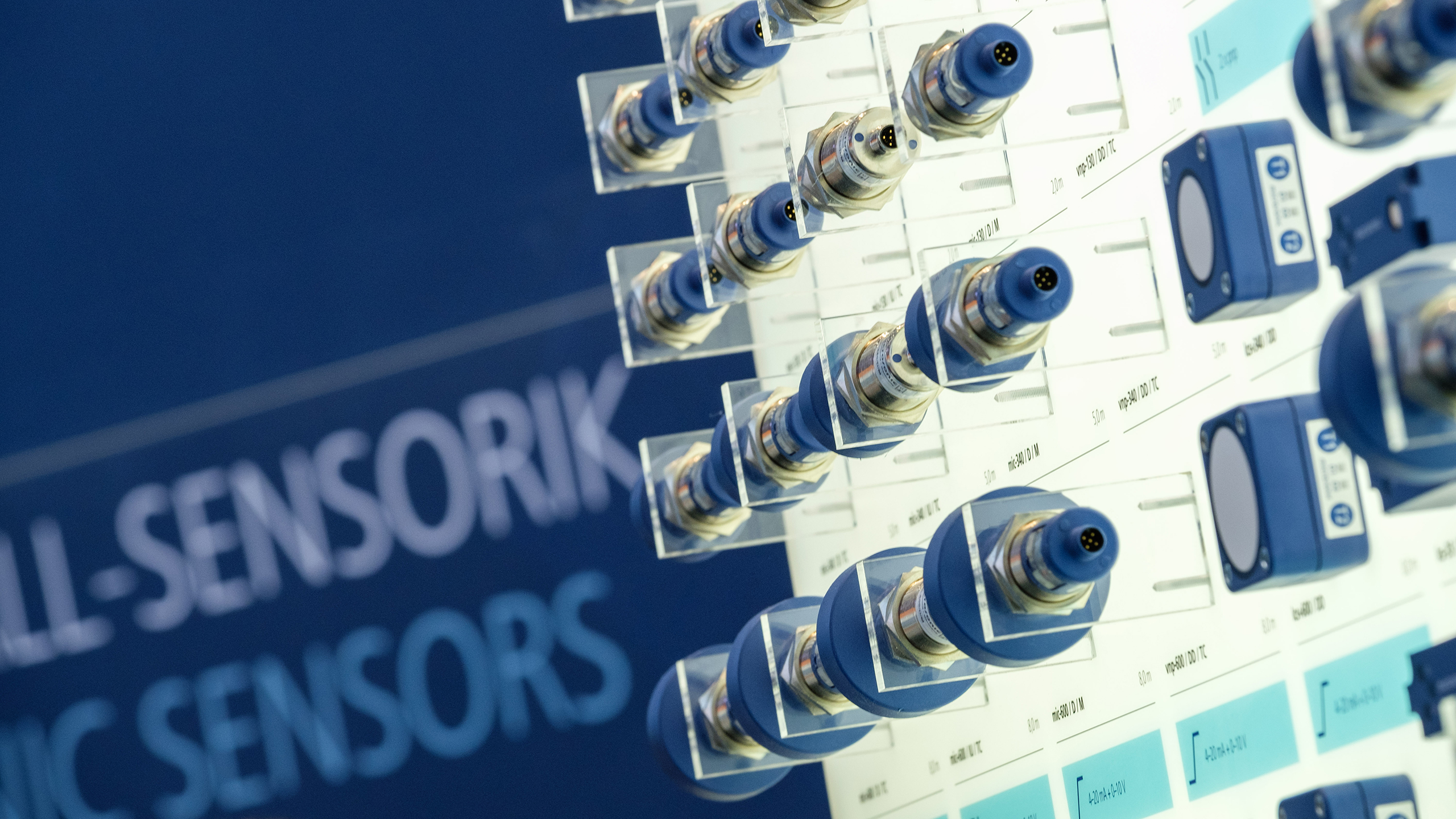The SPS provides a comprehensive look at smart and digital automation. To help you find what you’re looking for, we have divided the exhibition into 13 product and functional groups.
1. Drive systems and components
1.1. Standard motors
1.1.1. Asynchronous motors
1.1.2. Three-phase motors
1.1.3. Direct current motors
1.1.4. Synchronous motors
1.2. Dedicated motors
1.2.1. AC-servomotors
1.2.2. Brake motors
1.2.3. DC-servomotors
1.2.4. Direct drives (rotatory)
1.2.5. Gear motors
1.2.6. High geared frequency motors & drives
1.2.7. Hollow shaft drives
1.2.8. Compact drives
1.2.9. Linear motors
1.2.10. Planar motors
1.2.11. Precision drives
1.2.12. Belt and chain drives
1.2.13. Spindle motors
1.2.14. Torque motors
1.2.15. Transverse flux drives
1.3. Small motors
1.3.1. Brushless DC motors
1.3.2. Single-phase motors
1.3.3. Electronic motors
1.3.4. Direct current motors
1.3.5. Micro actuators
1.3.6. Micro motors
1.3.7. Stepping motors and drives
1.3.8. Voice coil actuators
1.3.9. AC motors
1.4. Motors by cooling method
1.4.1. Water
1.4.2. Oil
1.4.3. Air
1.5. Motors by environmental conditions
1.5.1. IP codes
1.5.1.1. IP0
1.5.1.2. IP20
1.5.1.3. IP65
1.5.1.4. IP69K Hygiene
1.5.2. Explosion-proof
1.6. Drives, systems, motion control
1.6.1. Power converters
1.6.1.1. Converters
1.6.1.2. Rectifiers
1.6.1.3. Inverters
1.6.2. Drives
1.6.2.1. Three-phase drives
1.6.2.2. DC drives
1.6.2.3. Compact drives
1.6.2.4. Positioning drives
1.6.2.5. Positioners
1.6.2.6. Electric traction drives
1.6.1. Drive controllers
1.6.2. Motor controllers
1.6.3. Decentralized drives
1.6.4. Vector controllers
1.6.5. Positioning systems
1.6.6. Technology functions for electric drives
1.7. Drive components
1.7.1. Brakes
1.7.2. Brake resistors
1.7.3. Brake modules
1.7.4. Chokes
1.7.5. Solenoids
1.7.6. EMC filters
1.7.7. Gears
1.7.8. Couplings
1.7.9. Motor power cables
1.7.10. Capacity modules
2. Sensor technology
2.1. Binary sensors
2.1.1. Flow sensors
2.1.2. Level sensors
2.1.3. Pulse sensors, counters
2.1.4. Inductive sensors
2.1.5. Capacitive sensors
2.1.6. Photoelectric sensors
2.1.7. Laser sensors
2.1.8. Magnetic sensors
2.1.9. Ultrasonic sensors
2.1.10. Sensors for cylinders
2.1.11. Pressure and vacuum sensors
2.1.12. Temperature sensors
2.1.13. Sensors for hazardous areas
2.2. Rotary transducers
2.2.1. Absolute value encoders
2.2.2. Incremental value encoders
2.2.3. Resolvers
2.2.4. Sine wave encoders
2.2.5. Tachometers
2.2.6. Rotary transducers for hazardous areas
2.2.7. Digital encoders
2.2.8. Digital encoders with single-cable solution
2.3. Identification sensors and systems
2.3.1. Code scanners
2.3.2. RFID systems
2.3.3. Identification sensors for hazardous areas
2.4. Industrial image processing
2.4.1. Vision sensors
2.4.2. Smart cameras
2.4.3. Vision systems
2.4.4. Lighting
2.4.5. Cameras
2.4.6. Lenses
2.4.7. Processing and evaluation software
2.5. Measuring sensors and systems
2.5.1. Accelerating sensors
2.5.2. Deformation sensors
2.5.3. Distance sensors
2.5.4. Torque sensors
2.5.5. Pressure sensors
2.5.6. Flow sensors
2.5.7. Color sensors
2.5.8. Humidity sensors
2.5.9. Level sensors
2.5.10. Velocimeters
2.5.11. Force transducers
2.5.12. Light grids
2.5.13. Linear encoders
2.5.14. Linear potentiometers
2.5.15. Inclination sensors
2.5.16. Measuring scanners
2.5.17. Temperature sensors
2.5.18. Angle sensors
2.5.19. Weighing sensors and systems
2.5.20. Sensors and devices for material analysis
2.5.21. Sensors for hazardous areas
2.5.22. 2-wire Ethernet sensor technology
2.6. Safety sensors and systems
2.6.1. Safety cameras
2.6.2. Safety light grids and curtains
2.6.3. Safety scanners
2.6.4. Safety switches
2.6.5. Safety connecting blocks
2.6.6. Safety shutdown mats
3. Control technology
3.2. Control modules
3.2.1. Control modules
3.2.2. I/O modules
3.2.3. Functional modules
3.2.4. Communication modules
3.2.5. Remote (fieldbus) I/O
3.2.6. Remote (fieldbus) functional modules
3.2.7. Remote (fieldbus) communication modules
3.3. Motion control (CNC or robotics)
3.3.1. Control modules
3.3.2. I/O modules
3.3.3. Positioning modules
3.3.4. Functional modules
3.3.5. Communication modules
3.4. Soft PLCs
3.4.1. Pure PLC function
3.4.2. PLC with NC/CNC motion function
3.4.3. Safety PLCs
3.5. Safety PLCs
3.5.1. Compact safety PLCs
3.5.2. Modular safety PLCs
3.5.3. Safe I/O modules
4. IPCs
5. Human-machine-interface
6. Factory power - grids and -supplies
6.1. Power supplies
6.1.1. Power supplies
6.1.2. Uninterruptible power supplies (UPS)
6.1.3. Power supplies for hazardous areas
6.1.4. Direct current networks
6.1.5. Transformers
6.2. Monitoring and protection equipment
6.2.1. Isolation monitoring devices
6.2.2. Fusing devices
6.2.3. Lightning and surge protection devices
6.2.4. Current and voltage monitoring devices
6.2.5. Phase failure protection devices
6.2.6. Monitor relays
6.2.7. Measuring relays
6.3. Safety devices and systems
2.1.1.Compact safety switches
2.1.2.Modular safety switches
6.4. Power quality
6.4.1. Active and passive filters
6.4.2. Main voltage quality
6.4.3. Network analyses
7. Interface and interface technology
7.1. Signal converters
7.1.1. Measuring amplifiers
7.1.2. Measuring transducers
7.1.3. Isolation amplifiers
7.1.4. Current and voltage transformers
7.1.5. Interface changer
7.1.6. Ex-isolating measuring transducers and isolation amplifiers
7.2. Interface modules
7.2.1. Optical couplers (SSRs)
7.2.2. Signaling relays
7.2.3. Timers
7.2.4. Counters
7.2.5. Switching relays
7.3. Interface technology
7.3.1. Rail-mounted terminal blocks for industrial use
7.3.2. Passive sensors/actor boxes
7.3.3. Plug connectors
7.4. Marking and installation technology
7.4.1. Marking materials and marking devices
7.4.2. Tools, machines and assistance devices
7.4.3. Control cabinets and mounting accessories
8. Low voltage-switching devices
8.1. Contactors
8.1.1. Motor contactors
8.1.2. Auxiliary contactors
8.1.3. Semiconductor relays
8.2. Motor protection devices
8.2.1. Motor protection switch
8.2.2. Overload relays
8.2.3. Motor starters/soft start devices
8.2.4. Motor management systems
8.3. Circuit breakers
8.3.1. Main switches
8.3.1.1. Disconnecting switches
8.3.1.2. Power switches
8.3.1.3. Switch disconnectors
8.3.2. Control switches
8.3.3. Electric cam switches
8.3.4. Mechanical switches
9. Mechanical infrastructure
9.1. Control cabinets and control cabinet systems
9.1.1. Heatings for cabinet systems
9.1.2. Coolings for cabinet systems
9.1.3. Fans and blowers for cabinet systems
9.2. Industrial housing systems
9.2.1. Housings
9.2.2. Racks
9.3. Cables and fiber optic systems
9.3.1. Cables and cords for industrial use
9.3.2. Fiber optic systems for industrial use
9.3.3. Cable carriers
9.3.4. Cable feedthrough
9.4. Rotary joints
9.4.1. Slip ring systems
9.4.2. Fiber optical rotary joints
10. Software & IT for manufacturing
10.1. Technology focus
10.1.1. Industrial AI
10.1.2. Cyber security
10.1.3. Edge computing applications & services
10.1.4. Cloud computing applications & services
10.1.5. Mobile applications
10.1.6. App marketplaces
10.2. Planning and engineering software
10.2.1. Mechanical construction
10.2.2. Electrical construction
10.2.3. Programming/software for control technology
10.2.4. HMI/SCADA programming software
10.2.5. General planning software
10.3. Production/manufacturing software
10.3.1. MES
10.3.2. Production data acquisition
10.3.3. Energy and resource management
10.3.4. Data management for the production
10.3.5. Production optimization
10.4. Maintenance software
10.4.1. Analysis
10.4.2. Asset management
10.4.3. Predictive maintenance
10.4.4. Condition monitoring
10.4.5. Remote monitoring
10.5. Industry focus
10.5.1. Discrete manufacturing
10.5.2. Mobile automation
10.5.3. Building automation
10.5.4. Process industry
10.5.5. Energy
11. Industrial communication
11.1. Industrial ethernet
11.1.1. Network infrastructure
11.1.2. Field devices (I/O modules etc.)
11.1.3. Functional modules
11.1.4. Network adapters
11.1.5. Tools
11.1.6. Software protocol stacks
11.2. Field bus systems
11.2.1. Network infrastructure
11.2.2. Field devices (I/O modules etc.)
11.2.3. Functional modules
11.2.4. Network adapters
11.2.5. Tools
11.2.6. Software protocol stacks
11.3. Safety field bus systems
11.3.1. Network infrastructure
11.3.2. Field devices (I/O modules etc.)
11.3.3. Functional modules
11.3.4. Network adapters
11.3.5. Tools
11.3.6. Software protocol stacks
11.4. Wireless communication
11.4.1. Network infrastructure (radio modems, access points)
11.4.2. Field devices
11.4.3. Functional modules
11.4.4. Network adapters
11.4.5. Safety devices
11.4.6. Tools
11.4.7. Wireless communication for hazardous areas
11.7. Industrial communication for hazardous areas
11.7.1. Network infrastructure
11.7.2. Field devices
11.7.3. Functional modules
11.7.4. Software and tools
11.9. Industrial IOT
11.9.1. Connection to cloud systems
11.9.2. Edge in the network
11.9.3. Network infrastructure and management for industrial IOT
12. Training and consulting
13. Functional groups
13.1. Bodies & associations
13.1.1. Support and development of specifications and standards
13.1.2. Associations and societies for standardization
13.2. Project planning & Engineering
13.2.1. Planning and project management tools
13.2.2. Supply of digital device data (digital twin)
13.2.2.1. For processing with CAD/CAE tools
13.2.2.2. For processing with engineering tools
13.2.2.3. Models for simulation of products, machines and processes
13.2.3. Planning and engineering tools
13.2.3.1. Electrical and mechanical construction
13.2.3.2. Design of automation systems
13.2.3.3. Drive dimensioning
13.2.3.4. Programming of PLCs
13.2.3.5. Provision of technology functions
13.2.3.6. Possibility of integration of external article data (e.g. XML files)
13.2.3.7. Simulation tools
13.3. Set-up
13.3.1. Tools for parametrization and configuration of products, production processes, machinery and equipment
13.3.2. Solutions for virtual set-up
13.3.3. Auto-tuning for field devices
13.4. Operation
13.4.1. Systems for production optimization
13.4.1.1. Integration of order, production and product data (e.g. connection to ERP systems)
13.4.1.2. Analysis of machine and process data
13.4.1.3. Energy data and resource management
13.4.1.4. Continuous Optimization/Adaption/AI
13.4.2. Systems for increasing machine and plant availability
13.4.2.1. Condition monitoring
13.4.2.2. Predictive maintenance
13.4.2.3. Assisted/Prescriptive Maintenance
13.4.2.4. Preventive Maintenance
13.4.3. Connectivity solutions
13.4.3.1. Cloud / Fog-based solutions
13.4.3.2. Control, monitoring and optimization of production processes
13.4.3.3. Service and support in the production process
13.4.3.4. Industrial Security
13.5. Smart Services (product- and system-related)
13.5.1. Network services (e.g. data storage, bandwidth)
13.5.2. Remote Support
13.5.3. Condition Monitoring
13.5.4. Dynamic Improvements
13.5.5. Lifecycle Information
13.5.6. Maintenance Management
13.5.7. Advanced Analytics
13.5.8. Process Efficiency
13.6. Service delivery
13.6.1. Design of machines and plants
13.6.2. Programming and set-up of machines and plants
13.6.3. Realization of integrated IoT solutions for production
13.6.4. Connectivity – networking of existing plants
13.6.5. Security Services

